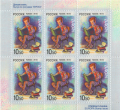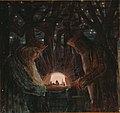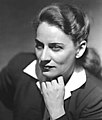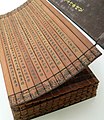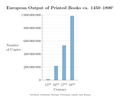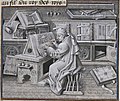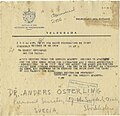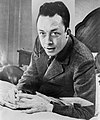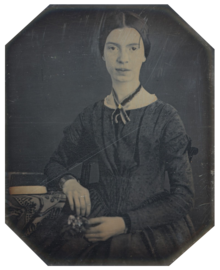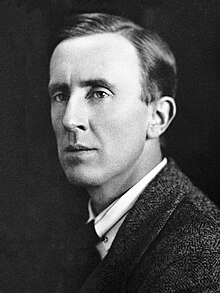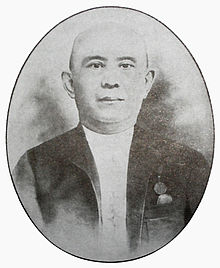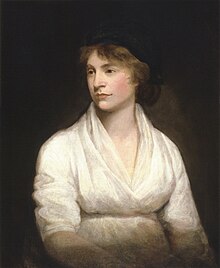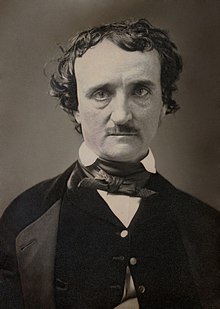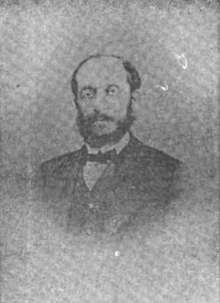Portal:Literature
Introduction

Literature is any collection of written work, but it is also used more narrowly for writings specifically considered to be an art form, especially novels, plays, and poems. It includes both print and digital writing. In recent centuries, the definition has expanded to include oral literature, much of which has been transcribed. Literature is a method of recording, preserving, and transmitting knowledge and entertainment. It can also have a social, psychological, spiritual, or political role.
Literary criticism is one of the oldest academic disciplines, and is concerned with the literary merit or intellectual significance of specific texts. The study of books and other texts as artifacts or traditions is instead encompassed by textual criticism or the history of the book. "Literature", as an art form, is sometimes used synonymously with literary fiction, fiction written with the goal of artistic merit, but can also include works in various non-fiction genres, such as biography, diaries, memoirs, letters, and essays. Within this broader definition, literature includes non-fictional books, articles, or other written information on a particular subject. (Full article...)
General images -
Jonathan Strange & Mr Norrell is the 2004 first novel by British writer Susanna Clarke. An alternative history set in 19th-century England around the time of the Napoleonic Wars, it is based on the premise that magic once existed in England and has returned with two men: Gilbert Norrell and Jonathan Strange. Centring on the relationship between these two men, the novel investigates the nature of "Englishness" and the boundaries between reason and unreason, Anglo-Saxon and Anglo-Dane, and Northern and Southern English cultural tropes/stereotypes. It has been described as a fantasy novel, an alternative history, and a historical novel. It inverts the Industrial Revolution conception of the North/South divide in England: in this book the North is romantic and magical, rather than rational and concrete.
The narrative draws on various Romantic literary traditions, such as the comedy of manners, the Gothic tale, and the Byronic hero. The novel's language is a pastiche of 19th-century writing styles, such as those of Jane Austen and Charles Dickens. Clarke describes the supernatural with mundane details. She supplements the text with almost 200 footnotes, outlining the backstory and an entire fictional corpus of magical scholarship. The novel was well received by critics and reached number three on the New York Times best-seller list. It was longlisted for the 2004 Man Booker Prize and won the 2005 Hugo Award for Best Novel.
Selected excerpt
| “ | Something incomprehensible, vexatious and hopeless takes possession of the man's whole being. He forgets his comrade who is awaiting him, forgets the work that is to be accomplished that night, and with his whole excited spirit abandons himself to the dumb dog. He cannot convince himself that the dog does not comprehend either the danger, or his words, or the necessity of going home at once. He lifts him angrily by the skin of his neck and so carries him ten steps nearer to the house. There he deposits him carefully on the snow and commands: "Away with you, go home!" | ” |
| — Leonid Andreyev, The Burglar | ||
More Did you know
- ... that Danilo Kiš's 1965 novel Garden, Ashes mixes fact and fiction, with both the narrator and the author having lost their fathers in the Holocaust?
- ... that in Lady of Sherwood, Jennifer Roberson chose to write about the demise of Richard I because the "death of a popular monarch always provide fodder for novelists"?
- ... that blind poet María Josefa Mujía was Bolivia's first woman writer after its independence?
- ... that De Scheepsjongens van Bontekoe, the 1924 Dutch children's book based on a real-life shipwreck in 1618, has sold more than 250,000 copies?
- ... that Iosif Vulcan changed the name of a young literary debutant to Mihai Eminescu, later Romania's national poet?
Selected illustration
Did you know (auto-generated) -

- ... that according to The Encyclopedia of Science Fiction, the 1913 Polish novel The Cross and the Crescent is "perhaps the first example" of the genre of military science fiction in Polish literature?
- ... that Romanian literary scholar Dan Simonescu, who edited a chronicle dealing with the reign of Michael the Brave, had to delete any mention of Michael having "all the Jews murdered"?
- ... that the lands of the Shirvanshah served as the focal point for Persian literature during the 12th century?
- ... that in her 2021 book The Origins of Early Christian Literature, Robyn Faith Walsh found that German Romanticists were in part responsible for modern scholarly assumptions about the gospels?
- ... that Rudaki is acknowledged as the founder of New Persian poetry in Iran and the father of Tajik literature in Tajikistan?
- ... that Soviet German literary critic Richard Knorre was injured in an explosion during the siege of Leningrad?
Today in literature
- 1589 - Ivan Gundulic, Croatian poet born
- 1728 - Thomas Warton, English poet born
- 1790 - Per Daniel Amadeus Atterbom, Swedish poet born
- 1811 - Gilbert Abbott à Beckett, English writer born
- 1873 - Hayyim Nahman Bialik, Ukrainian poet born
- 1881 - Lascelles Abercrombie, British poet and critic born
- 1881 - Giovanni Papini, Italian writer born
- 1890 - Karel Čapek, Czech writer born
- 1908 - Simone de Beauvoir, French author born
- 1923 - Katherine Mansfield, New Zealand writer died
- 1928 - Judith Krantz, American author born
- 1929 - Brian Friel, Irish dramatist born
- 1931 - Algis Budrys, American author born
- 1936 - Anne Rivers Siddons, American writer born
- 1946 - Countee Cullen, American poet died
- 1961 - Emily Greene Balch, American writer died
- 1992 - Bill Naughton, British playwright died
Topics
| Literature: | History of literature · History of the book · Literary criticism · Literary theory · Publishing |
| By genre: | Biography · Comedy · Drama · Epic · Erotic · Fable · Fantasy · Historical fiction · Horror · Mystery · Narrative nonfiction · Nonsense · Lyric · Mythopoeia · Poetry · Romance · Satire · Science fiction · Tragedy · Tragicomedy · more... |
| By region: | African literature · Asian · European · Latin American · North American · Oceanic |
| By era: | Ancient literature · Early medieval · Medieval · Renaissance · Early Modern · Modern |
| By century: | 10th century in literature · 11th · 12th · 13th · 14th · 15th · 16th · 17th · 18th · 19th · 20th · 21st |
| Recent: | 2018 in literature· 2017 · 2016 · 2015 · 2014 · 2013 · 2012 · 2011 · 2010 · 2009 · 2008 · 2007 · more... |
Categories
Related portals
| Concepts: | |
| Genres: | |
| Religions: |
Things you can do
Related WikiProjects
WikiProjects related to literature:
| Concepts: | Biographies · Books · Comics · Magazines · Manga · Novels · Poetry · Short stories · Translation studies |
| Genres: | Alternate history · Children's literature · Crime · Fantasy · Horror · Mythology · Romance · Science fiction |
| Authors: | Honoré de Balzac · Roald Dahl · William Shakespeare |
| Series: | Artemis Fowl · Chronicles of Narnia · Discworld · Harry Potter · His Dark Materials · Hitchhiker's Guide to the Galaxy · Inheritance Cycle · James Bond · King Arthur · Middle-earth · Percy Jackson · Redwall · A Series of Unfortunate Events · Shannara · Sherlock Holmes · A Song of Ice and Fire · Star Wars · Sword of Truth · Twilight · Warriors · Water Margin · Wizard of Oz |
| Regions: | Australian literature · Indian literature · Persian literature |
Associated Wikimedia
The following Wikimedia Foundation sister projects provide more on this subject:
-
Commons
Free media repository -
Wikibooks
Free textbooks and manuals -
Wikidata
Free knowledge base -
Wikinews
Free-content news -
Wikiquote
Collection of quotations -
Wikisource
Free-content library -
Wikiversity
Free learning tools -
Wiktionary
Dictionary and thesaurus









